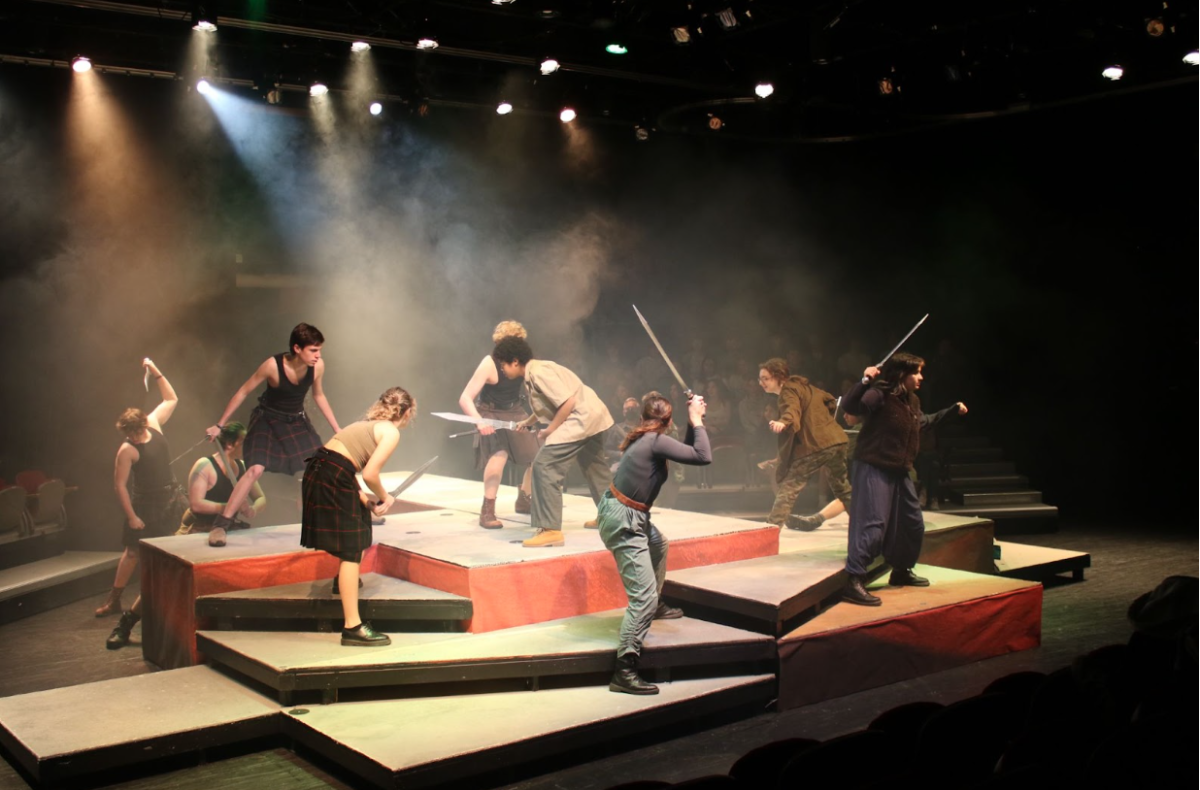After reading “Macbeth” by William Shakespeare as a part of the 10th-grade English curriculum, sophomores watched the upper school play, also “Macbeth,” in a special matinee performance.
Reading and watching a play can be two completely different experiences. Many students observed the differences and similarities in their experiences of reading and watching “Macbeth.”
While reading the text for class, sophomore Tindra Jemsby noticed the difficulty in understanding the language used in the text.
“It is such a dense read because it includes a bunch of Shakespearean English,” Jemsby said.
Jemsby was not the only student who struggled with the use of Early Modern English while reading “Macbeth.” Junior Cayetana Hamilton-Garcia, who starred as Macbeth in the play, also felt that reading the script of “Macbeth” in English class was difficult to comprehend and altered her perception of the characters. Whereas during her performance, she felt that the language was easier to understand since it had been slightly modified.
“I didn’t understand the language,” Hamilton-Garcia said. “When you don’t understand the language properly, you don’t understand what they are saying, and you don’t understand the characters.”
In preparation for the play, Hamilton-Garcia explained how the directors dedicated time for the cast to learn more about Early Modern English.
“We would sit down and try to understand every single word and what everything meant,” Hamilton-Garcia said.
She expressed how performing as Macbeth enhanced her knowledge of the plot in a different way than if she had simply been reading the text for an English class.
“There’s a huge difference, because when you perform [“Macbeth”] you can actually see the entire story play out,” Hamilton-Garcia said. “When I was reading it, I was more focused on annotating things, because I might need them for an essay.”
Jemsby also felt that experiencing Macbeth outside of the classroom solidified the story and allowed her to look at it through a less academic lens.
“In English, we analyzed the story through mostly abstract themes,” Jemsby said. “The visual representation of the story was the exact opposite: a physical, literal display of the play. Having those faces to refer to while thinking about the play now makes it a lot more concrete.”
Similarly, sophomore Claire Ewing, felt that the story was brought to life during the performance.
“One thing that really stuck out to me and changed my perception of the story was all the emotions and the connections between the characters,” Ewing said.
Being able to watch and visualize the story helped not only the audience but also the performers to recognize the sentiment behind the play.
“I was able to visualize each individual character and see how they were played out and feel that conflict,” Hamilton-Garcia said. “Whereas when I read it, I wasn’t able to actually feel that.”
By Andrea Brudniak-Berrocal

































































